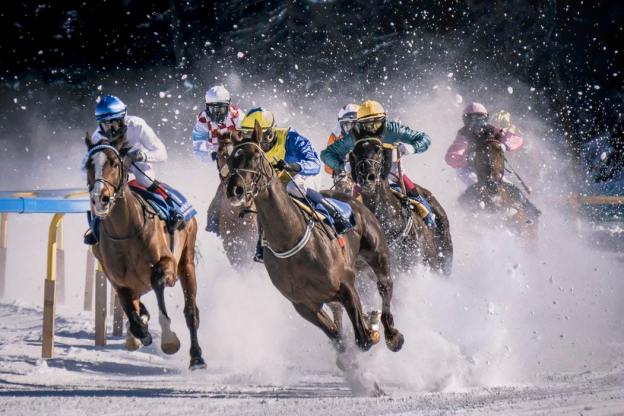
Intuição e instinto não são o mesmo. Enquanto o segundo dá forma a um comportamento orientado para nos permitir sobreviver, o primeiro atrai um sentido mais profundo em nossa espécie, dando uma voz interna que nos ajuda a tomar melhores decisões. Assim, embora ambas as dimensões não tenham uma origem comum, elas ajudam a responder muito melhor aos desafios quotidianos.
Para entender essa diferença um pouco melhor, vamos pensar em dois maravilhosos personagens literários. Robinson Crusué é o corajoso marinheiro de York que, após ficar isolado por 28 anos em uma ilha após um naufrágio, faz uso de seus instintos mais básicos para sobreviver a uma situação perigosa e complexa. Por outro lado, Sherlock Holmes é a melhor referência de uma mente acostumada a fazer uso de seu instinto policial, daquelas deduções quase inconscientes, ágeis e precisas para resolver os enigmas mais desafiadores.
Intuição e instinto, entre biologia e perceção
A intuição e o instinto não são os mesmos, apesar de cairmos no erro de usar os dois termos com frequência indistintamente. Assim, é muito comum usá-los nos contextos em que nossas sensações ou emoções nos orientam numa direção ou noutra. Frases como “o meu instinto diz-me” e “minha intuição diz-me” são, sem dúvida, o exemplo claro desse pequeno erro conceitual que vale a pena esclarecer por um fato muito claro: para nosso benefício pessoal
O que é instinto?
Do ponto de vista biológico, um instinto é um comportamento inato. São as nossas necessidades internas e os comportamentos que nos permitem sobreviver num determinado ambiente. Desta forma, instintos como conservação, proteção, sociabilidade, reprodução, cooperação ou curiosidade são faculdades muito básicas que definem não apenas os seres humanos, mas também uma grande parte dos animais.
Agora, é curioso como a partir do século XX e com o desenvolvimento da psicologia moderna, o conceito de instinto começou a ser visto como desconfortável. Era como aquele elo que nos ligava a uma versão quase selvagem do ser humano, uma dimensão que era melhor reprimida ou camuflada com outros rótulos. Desta forma, figuras como Abraham Maslow começaram a popularizar termos como “desejo” ou “motivação” para simbolizar as necessidades internas de cada um de nós.
Agora, no século 21, essa conceção mudou muito.
O binómio intuição e instinto são novamente muito apreciados, e no que se refere à última dimensão, a reformulação que é feita do instinto é tão interessante quanto reveladora. Desta forma, nomes como o Dr. Hendrie Weisinger, influente psicólogo clínico e autor do livro The genius of instinct, explicam que os instintos não são obscuros ou primitivos. Eles não são algo para reprimir. Se aprendermos a usá-las a nosso favor, podemos lidar com fatores muito melhores, como stress ou medo. Além disso, capacitar instintos como compaixão, cuidado ou bondade nos permitiria criar ambientes mais enriquecedores e significativos. Porque além do que pode parecer, o “instinto compassivo” ou bondade existe em cada um de nós, como revelado por um estudo do professor Dacher Keltner, da Universidade da Califórnia, em Berkeley.
O que é intuição?
Algumas pessoas pensam que a intuição é um conjunto de sensações que nos dão a pista sobre alguma coisa. Bem, deve-se dizer que esta dimensão não responde a processos mágicos ou percepções sensoriais, eles são mais “perceções cognitivas”. O próprio Carl Jung definiu a pessoa intuitiva como alguém que pode antecipar certos eventos ou situações usando seu próprio material inconsciente.
Agora, esse material inconsciente é o resultado de tudo o que somos, de tudo o que vivemos, vemos e experimentamos. É a essência do nosso ser, um baú de informação comprimida que o cérebro usa para obter respostas rápidas, que não passam pelo filtro de uma análise objetiva.
Assim, e por mais impressionante que pareça, os especialistas nos dizem que ser guiado pelo que a intuição nos diz é tão positivo quanto aconselhável.
Este trabalho conclui mais uma vez com algo que o mundo científico e o campo da psicologia já estavam avançando: o uso de informações inconscientes nos permite não só tomar decisões mais rápidas, mas levar uma vida mais alinhada com nossas necessidades e personalidade.
Fonte e méritos: https://giveitaspin.net/2018/12/11/intuition-and-instinct-2-powerful-but-different-abilities/
————————————————– —————————————- ———————————-

Intuition and instinct are not the same. While the second gives form to a behavior oriented to allow us to survive, the first draws a deeper sense in our species giving us an internal voice that helps us make better decisions. Thus, although both dimensions do not have a common origin, they help us to respond much better to everyday challenges.
To understand this difference a little better, let’s think of two wonderful literary characters. Robinson Crusoe is that brave York sailor who, after being isolated for 28 years on an island after a shipwreck, makes use of his most basic instincts to survive a hazardous and complex situation. On the other hand, Sherlock Holmes, is the best reference of a mind accustomed to make use of its police instinct, of those almost unconscious, agile and accurate deductions with which to solve the most challenging enigmas.
Thus, the most interesting without doubt of these two competences or behaviors is that we both apply them equally in our day to day without hardly realizing it. However, only intuition is characteristic of the human being. Knowing how to use both approaches in the best way, and in our favor, can help us to prosper with greater security, to better manage our fears and stress, to use our experience and capacities to have a more meaningful life. Let’s see more data below.
Intuition and instinct, between biology and perception
Intuition and instinct are not the same, although we fall into the error of using both terms indistinctly often. Thus, it is very common to use them in those contexts where our sensations or emotions orient us in one direction or another. Phrases like “my instinct tells me” and “my intuition tells me” are undoubtedly the clear example of that small conceptual error that is worth clarifying for a very clear fact: for our personal benefit.
What is instinct?
From a biological point of view an instinct is an innate behavior. They are our internal needs and those behaviors that allow us to survive in a certain environment. In this way, instincts such as conservation, protection, sociability, reproduction, cooperation or curiosity are very basic faculties that define not only human beings, but also a large part of animals.
Now, it is curious how from the twentieth century and with the development of modern psychology, the concept of instinct began to be seen as uncomfortable. It was like that link that bound us to an almost wild version of the human being, a dimension that was better repressed or camouflaged with other labels. In this way, figures like Abraham Maslow began to popularize terms like “desire” or “motivation” to symbolize those internal needs of each of us.
Now, in the 21st century, this conception has changed a lot. The binomial intuition and instinct are again highly appreciated, and in what refers to the last dimension, the reformulation that is made of the instinct is as interesting as revealing. In this way, names like Dr. Hendrie Weisinger, influential clinical psychologist and author of the book The genius of instinct, explains that instincts are not obscure or primitive. They are not something to repress.
If we learn to use them in our favor we can handle much better factors such as stress or fear. Furthermore, empowering instincts such as compassion, care, or kindness would allow us to create more enriching and meaningful environments. Because beyond what may seem, the “compassionate instinct” or kindness exist in each of us, as revealed by a study by Professor Dacher Keltner, of the University of California, Berkeley.
What is intuition?
Some people think that intuition is a set of sensations that give us the clue about something. Well, it should be said that this dimension does not respond to magical processes or sensory perceptions, they are rather “cognitive perceptions”. Carl Jung himself defined the intuitive person as someone who can anticipate certain events or situations using their own unconscious material.
Now, that unconscious material is the result of all that we are, of all that we have lived, seen and experienced. It is the essence of our being, a chest of compressed information that the brain uses to obtain quick answers, thatThey do not pass through the filter of an objective analysis.
So, and as striking as it may be, the experts tell us that being guided by what intuition tells us is as positive as it is advisable.
This work concludes once again with something that the scientific world and the field of psychology was already advancing: making use of unconscious information allows us not only to make faster decisions, but to lead a life more in line with our needs and personality.
Conclusion
We already know that intuition and instinct do not share the same origin: instinct has a biological basis, while intuition is the result of our experience and the development of consciousness. However, both have in reality an undeniable common goal: to allow us to be more adjusted to our reality, survive in it effectively, anticipate risks and shape a more connected and satisfying life. Listen to them and let’s put them at our service.
Source & merit: https://giveitaspin.net/2018/12/11/intuition-and-instinct-2-powerful-but-different-abilities/